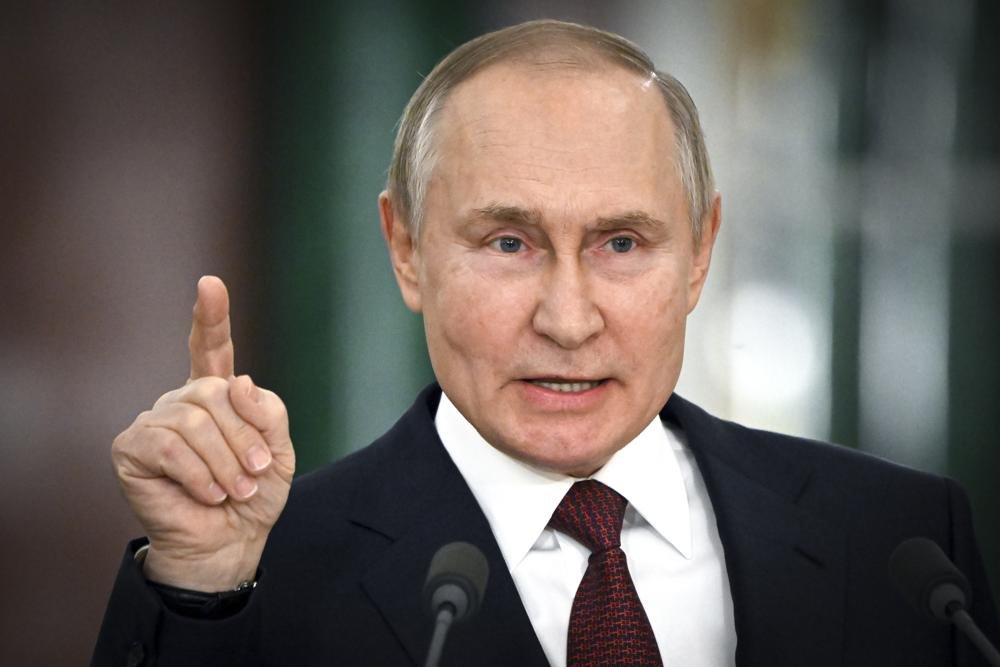FRANKFURT, Dec 4 (AP): The Saudi-led OPEC oil cartel and allied producing countries, including Russia, are expected to decide how much oil to supply to the global economy amid weakening demand in China and uncertainty about the impact of new Western sanctions against Russia that could take significant amounts of oil off the market.
The 23-country OPEC+ alliance is scheduled to meet Sunday, a day ahead of the planned start of two measures aimed at hitting Moscow’s oil earnings in response to its war in Ukraine. Those are a European Union boycott of most Russian oil and a USD 60-per-barrel price cap on Russian exports imposed by the EU and Group of Seven democracies.
Russia rejected the price cap approved Friday and threatened to stop supplying the nations that endorsed it.
Oil has been trading lower on fears that coronavirus outbreaks and China’s strict zero-Covid restrictions would reduce demand for fuel in one of the world’s major economies. Concerns about recessions in the U.S. and Europe also raise the prospect of lower demand for gasoline and other fuel made from crude.
That uncertainty is the reason OPEC+ gave in October for a slashing production by 2 million barrels per day starting in November, which some saw as a possible move to help Russia weather the European embargo. The impact had some limitations because OPEC+ countries already can’t meet their quotas.
With the global economy slowing, oil prices have been falling since summertime highs, with international benchmark Brent closing Friday at USD 85.42 per barrel, down from USD 98 a month ago. That has eased gasoline prices for drivers in the U.S. and around the world.
On the other side, the price cap and EU boycott could take an unknown amount of Russian oil off the global market, tightening supply and driving up prices. To prevent a sudden loss of Russian crude, the price cap allows shipping and insurance companies to transport Russian oil to non-Western nations at or below that threshold. Most of the globe’s tanker fleet is covered by insurers in the G-7 or EU.
Russia would likely try to evade the cap by organizing its own insurance and using the world’s shadowy fleet of off-the-books tankers, as Iran and Venezuela have done, but that would be costly and cumbersome, analysts say.
Facing those uncertainties for the global oil market, OPEC oil ministers led by Saudi Arabia could leave production levels unchanged or cut output again to keep prices from declining further. Low prices mean less revenue for governments of producing nations.
“We feel that the meeting will be fairly short, and the alliance will stick to the current output targets,” said Gary Peach, oil markets analyst with Energy Intelligence. Standing pat makes sense “all the more so because oil is at USD 87 per barrel (earlier Friday), which is a good price for everybody. … Of course, USD 98 is better, but right now I think they see the market as adequately priced, adequately supplied and there’s no reason to rock the boat.”
Analysts at Clearview Energy Partners, on the other hand, expect OPEC+ to announce a production cut of 1 million barrels per day. Some members are underproducing, so that would more likely amount to a production cut of roughly 580,000 barrels per day.
A cut of that magnitude wouldn’t cause a problem with global supplies, even when taking into consideration the EU ban on Russian oil, which is expected to pull another 1 million barrels off the market, said Jacques Rousseau, managing director at Clearview Energy Partners. Oil use declines in the winter, in part because fewer people are driving.
But the G-7 price cap could prompt Russia to retaliate and take more oil off the market. The Saudis are “likely to share the Kremlin’s interest in quashing the G-7’s rising buyers’ cartel,” said Kevin Book, another managing director at Clearview.
The cap of $60 a barrel is near the current price of Russian oil, meaning Moscow could continue to sell while rejecting the cap in principle.
“If Russia ends up taking off more oil than about a million barrels per day, then the world becomes short on oil, and there would need to be an offset somewhere, whether that’s from OPEC or not,” Rousseau said. “That’s going to be the key factor — is to figure out how much Russian oil is really leaving the market.”












